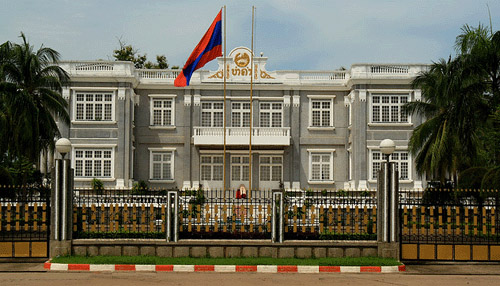Lao Govt To Cut ‘Lavish’ Spending
The government has instructed state agencies to formulate comprehensive belt-tightening measures against “lavish” practices to in a move to cut public spending.
The directive came at a recent annual government meeting in Vientiane, at which cabinet, the Vientiane Mayor and provincial governors discussed a draft Prime Ministerial order to introduce more frugal spending measures.
Laos is currently facing budgetary tensions that have already seen some state employees face months without receiving salary payments.
The country is also plagued by chronic debt; according to the Ministry of Finance and the Ministry of Planning and Investment, the country’s debt was equivalent to 29.8 percent of gross domestic product (GDP) in June, with GDP for the 2012-2013 fiscal year predicted to reach US$10 billion, an increase of about 8 percent on the previous year.
Infrastructure development projects funded on loans from the private sector driving investment costs unreasonably high and unapproved projects being carried out across the country are among the main contributors to the accumulated debt.
The government described current state budget spending and lifestyles in Lao society in general as being “lavish”.
New regulations aimed at frugality now being drawn up aim to address any excessive spending in state investment, particularly investment in infrastructure projects, the use of raw materials, resources and state vehicles and fees for telephone and electricity use.
Cabinet instructed relevant officials to review unit costs for road, office or building construction projects financed by the state budget in an effort to push more efficient spending.
The new regulation also seeks to cut spending on foreign trips and working trips to local areas by government officials.
Similar regulations have previously been announced but were ineffectively implemented.
To more strictly en force the new regulation, cabinet directed the Ministry of Finance to work with the Government Inspection Authority, the Ministry of Justice and the Government Office to revise the draft prime ministerial order into a Prime Ministerial or Presidential Decree.
The government suggested leading officials in each state organisation must take the lead in encouraging all staff to follow the regulation.
Source: Vientiane Times

